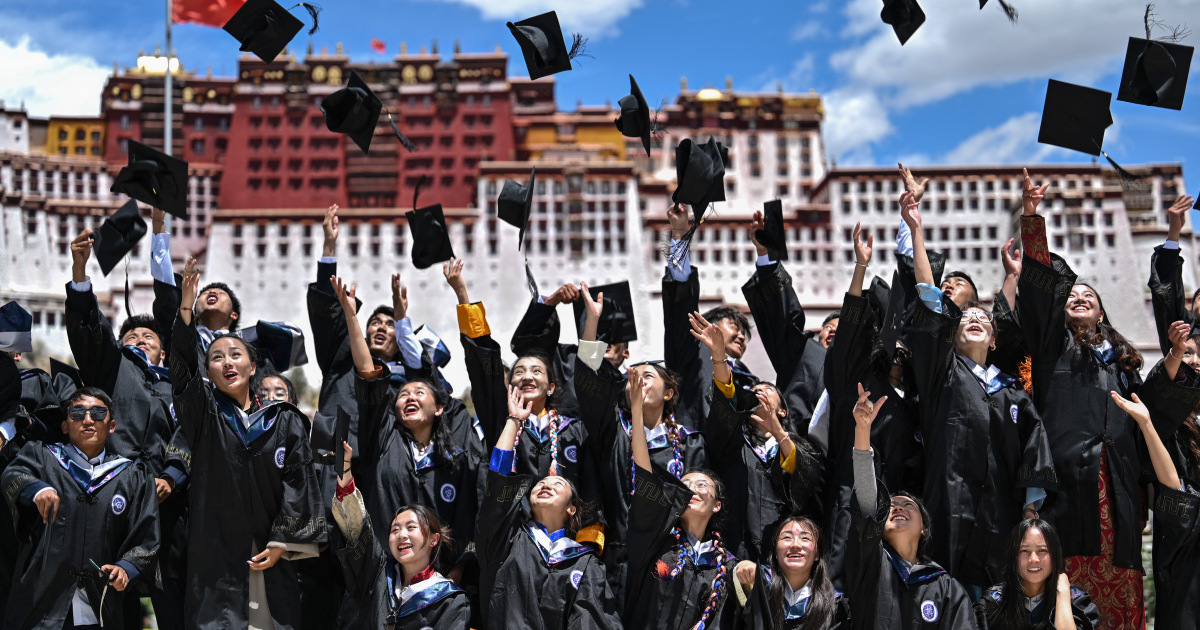‘Higher learning’: Of scriptures and football at a Tibet college
Maroon-robed Tibetan nuns vigorously debate Buddhist precepts, while monks dash across an artificial grass pitch on the roof of the world to kick a football.
The Tibetan Buddhist College, one of the highest places of learning on the planet, has more than 900 students who study Mandarin, English and political studies.
It all takes place under the benign gaze of China’s President Xi Jinping, whose portrait festoons the college, which is tucked into a hillside at least 3,600 metres (11,800 feet) above sea level.
Beijing says it “peacefully liberated” the mountainous region of Tibet in 1951 and insists it has since brought infrastructure and education to a previously underdeveloped region.
Chinese flags and the aphorisms of Xi pepper the college grounds.
But there are no signs of Tibetan spiritual leader the Dalai Lama, who fled the region in 1959 and set up a government-in-exile in India.
AFP news agency joined a government-steered media tour this week to the politically sensitive region.
Since 2008, it has been nearly impossible for journalists to visit except on organised trips.
Sporadic protests have broken out in Tibet in recent decades, including some self-immolations by monks in the heart of Lhasa and large protests against Chinese rule in 2008, which left many dead.
Rights groups say that now expressing any anti-government view is extremely dangerous, while simmering unrest is quickly stamped out.
During the media tour, the college students were glowing in their praise of their education.
Monks, nuns and novices rehearsed religious texts, showed off their English and demonstrated traditional Buddhist debates, with the speaker delivering emphatic rhetorical flourishes in a pebbled courtyard.
“I have been here for more than two years,” said 32-year-old monk Xirekewang. “We study from 6am to around 9pm in the evening. I like studying here and don’t feel tired … the life is very good.”
But China has been accused of deliberately diluting Tibetan culture, including by directing its education system.
Critics say freedom of movement and expression is tightly controlled amid the continuing “Sinicisation” of the region.
Academics also say it has become extremely difficult to carry out studies of the region, making it harder to independently assess the quality of life on the ground.
“The levels of repression needed to keep a lid on things in Tibet … tells me that things continue to be tense there,” said Gray Tuttle, professor of modern Tibet studies at Columbia University.
The students were all smiles for foreign media at the well-funded Lhasa campus which boasts a new artificial turf football pitch and running track.
The vice president of the university, Gesang Wangdui, told the media the college’s success is down to China.
“I am a party member. I am not a Buddhist, I am a communist.”













